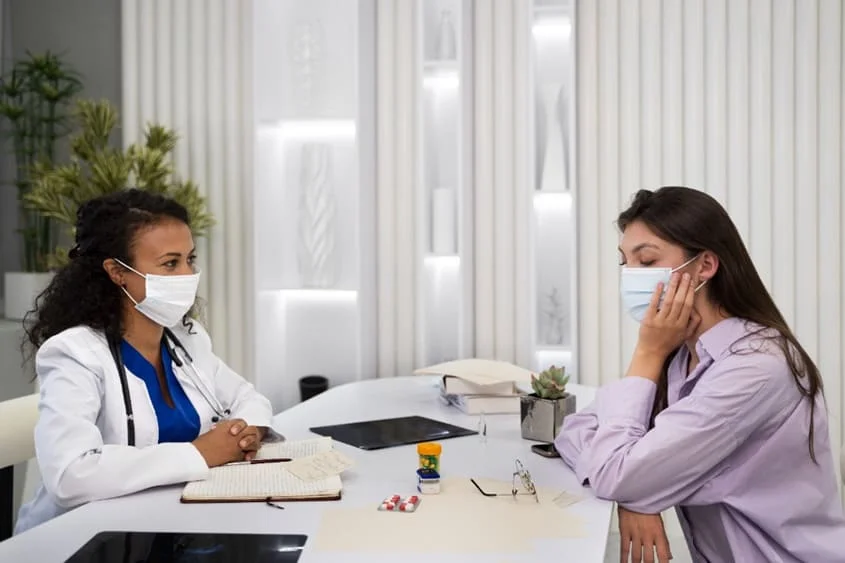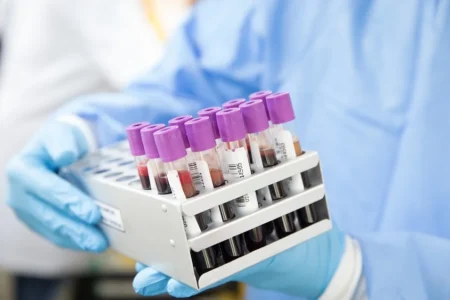When it comes to maintaining optimal health, understanding your hormones is crucial. Hormones control a variety of bodily functions, from metabolism and energy levels to mood and reproductive health. This is why hormone testing clinics have become essential for individuals seeking to understand their hormone levels and improve their overall well-being. In this blog post, we’ll explore the various treatments offered at hormone testing clinics and how they can help you achieve a balanced life with healthy remedies.
What is a Hormone Testing Clinic?
A hormone testing clinic is a specialized facility where healthcare professionals conduct tests to measure the levels of hormones in your body. Hormones are chemicals that act as messengers in your body, influencing various physiological processes. Imbalances in hormone levels can lead to a wide range of health issues, including fatigue, weight gain, mood swings, and even infertility.
At a hormone testing clinic, doctors use advanced diagnostic tools to assess your hormone levels and identify any imbalances. These tests can provide insights into whether your symptoms are related to a hormonal imbalance and help guide appropriate treatments.
Why Should You Visit a Hormone Testing Clinic?
Hormonal imbalances are often linked to chronic conditions such as thyroid disorders, menopause, adrenal fatigue, and polycystic ovary syndrome (PCOS). If you’re experiencing symptoms like unexplained weight gain, excessive fatigue, difficulty sleeping, or mood fluctuations, a hormone test can help pinpoint the cause.
A hormone testing clinic is the first step in determining whether hormone therapy or other treatments are necessary. By addressing hormonal imbalances, these clinics can offer solutions that help restore your health and vitality, often through natural and healthy remedies.
Common Treatments Offered at Hormone Testing Clinics
Hormone testing clinics offer a variety of treatments aimed at balancing hormone levels and restoring overall health. These treatments are tailored to individual needs and are often used in conjunction with personalized lifestyle recommendations. Below are some of the most common treatments offered at these clinics:
1. Bioidentical Hormone Replacement Therapy (BHRT)
Bioidentical Hormone Replacement Therapy (BHRT) is one of the most popular treatments for hormone imbalances. It involves using synthetic hormones that are chemically identical to the hormones produced naturally by the body. BHRT is often prescribed to individuals experiencing symptoms of menopause, perimenopause, or andropause (the male equivalent of menopause).
BHRT aims to restore hormonal balance by addressing estrogen, progesterone, and testosterone imbalances. This treatment has gained popularity due to its ability to provide relief from symptoms like hot flashes, mood swings, fatigue, and low libido, using hormones that are more natural and similar to the body’s own.
2. Thyroid Hormone Therapy
Thyroid hormones regulate metabolism and energy levels. If your thyroid is underactive (hypothyroidism) or overactive (hyperthyroidism), it can lead to weight fluctuations, fatigue, depression, and other health problems. Thyroid hormone therapy involves replacing the missing or excessive thyroid hormones in the body to restore balance.
For those with hypothyroidism, synthetic thyroid hormones or natural desiccated thyroid may be prescribed. The goal of thyroid hormone therapy is to bring thyroid levels back to a normal range, improving metabolism and energy.
3. Testosterone Replacement Therapy (TRT)
Testosterone is the primary male sex hormone, but it also plays an important role in women’s health. Low testosterone levels can lead to fatigue, reduced libido, muscle loss, and mood changes. Testosterone replacement therapy (TRT) is commonly used for both men and women who have low testosterone levels.
This treatment can be administered through various forms, including injections, patches, gels, or pellets. By restoring testosterone levels, TRT can help improve energy levels, enhance mood, and support muscle strength and sexual health.
4. Adrenal Hormone Therapy
The adrenal glands produce hormones like cortisol, adrenaline, and aldosterone, which help the body manage stress, regulate metabolism, and maintain fluid balance. Adrenal fatigue occurs when the adrenal glands become overworked due to chronic stress, leading to symptoms like fatigue, weight gain, anxiety, and difficulty sleeping.
Adrenal hormone therapy typically involves using natural remedies and supplements to support the adrenal glands and restore balance. Healthy remedies, including adaptogenic herbs like ashwagandha and rhodiola, are often recommended to reduce stress and support adrenal function.
5. Insulin Sensitivity and Blood Sugar Balance Treatments
Hormones like insulin regulate blood sugar levels, and imbalances can lead to insulin resistance, which is commonly associated with conditions like type 2 diabetes and metabolic syndrome. Hormone testing clinics may offer treatments aimed at improving insulin sensitivity and stabilizing blood sugar levels.
These treatments may include lifestyle changes such as diet and exercise recommendations, as well as supplementation with natural remedies like cinnamon, magnesium, and chromium to support blood sugar balance.
Healthy Remedies to Complement Hormone Treatments
In addition to traditional hormone therapies, many hormone testing clinics emphasize the use of healthy remedies to enhance the effectiveness of treatments. These natural approaches can help support hormonal balance and improve overall health.
1. Adaptogenic Herbs
Adaptogens are natural substances that help the body adapt to stress and restore balance. Herbs like ashwagandha, rhodiola, and holy basil have been shown to reduce stress, improve mood, and support adrenal health. They can be a valuable addition to hormone therapies, especially for individuals with adrenal fatigue or chronic stress.
2. Dietary Adjustments
A healthy, balanced diet is essential for hormone balance. Foods rich in healthy fats, fiber, and antioxidants can support hormone production and function. For example, omega-3 fatty acids found in fish and flaxseeds can help regulate estrogen levels, while fiber-rich foods like vegetables and whole grains can support healthy digestion and hormone metabolism.
3. Exercise and Movement
Regular exercise is another healthy remedy that can help balance hormones. Physical activity improves insulin sensitivity, reduces stress, and supports overall metabolic health. Both aerobic exercises, like walking or running, and strength training can help boost testosterone levels and support overall hormonal health.
4. Sleep Optimization
Quality sleep is crucial for hormone production and regulation. Poor sleep can lead to hormonal imbalances, including elevated cortisol levels and disrupted insulin sensitivity. Hormone testing clinics often provide guidance on improving sleep hygiene, recommending practices such as a consistent sleep schedule, limiting screen time before bed, and creating a restful sleep environment.
5. Stress Reduction Techniques
Chronic stress can wreak havoc on your hormones, particularly cortisol. Hormone testing clinics often incorporate stress reduction strategies such as meditation, yoga, deep breathing exercises, and mindfulness practices. These methods help reduce stress and cortisol levels, promoting a healthier hormonal balance.
Conclusion
Visiting a hormone testing clinic can be a pivotal step in understanding your health and achieving a balanced life. Whether you’re dealing with thyroid imbalances, menopause symptoms, or adrenal fatigue, these clinics offer a variety of treatments that can help restore your hormone levels and improve your quality of life. By combining hormone therapy with healthy remedies like diet, exercise, and stress management techniques, you can take a holistic approach to health that supports long-term well-being. So, if you’re feeling out of sync with your body, it may be time to explore the treatments offered at a hormone testing clinic and discover how they can help you regain balance.







